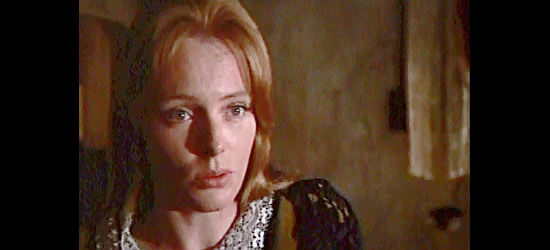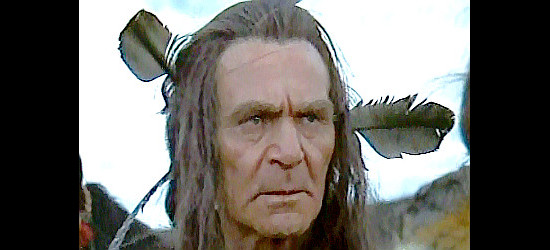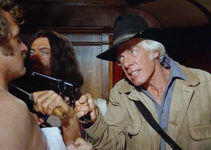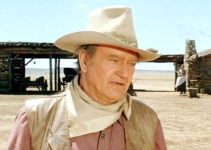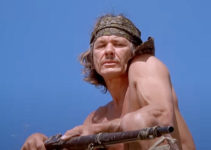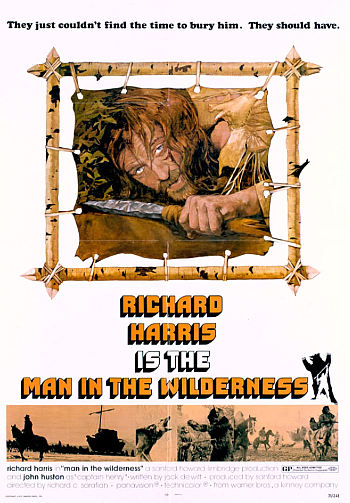 Richard Harris is Zachary Bass, a scout and hunter with the Capt. Henry fur-trapping expedition in 1820.
Richard Harris is Zachary Bass, a scout and hunter with the Capt. Henry fur-trapping expedition in 1820.
Dragging a ship mounted on wheels across land with a team of 22 mules, Capt. Henry (John Huston) is rushing to reach the Missouri River before winter snow sets in.
Bass is tracking a deer wounded by a young hunting companion named Lowrie when he’s attacked by a grizzly.
Lowrie runs for help. When he returns, the bear is still mauling Bass. The fur trappers shoot it dead, but find Bass seriously — likely fatally — injured.
Henry assigns two men — Lowrie and Fogarty — to stay with Bass and bury him when he dies.
But when a band of Indians ride by, the two men abandon Bass, even though he’s showing signs of life at that point.
Indeed, he doesn’t die.
Instead, he’s left to fend for himself in the wilderness with no food, no weapons and only his will to survive.
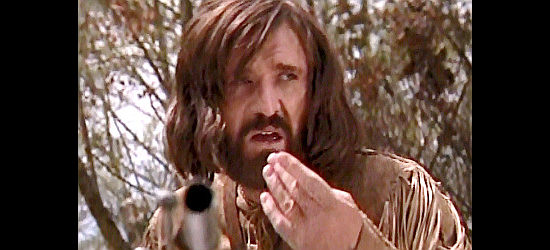
Richard Harris as Zachary Bass, on the track of a wounded deer and about to find a bear instead in Man in the Wilderness (1971)
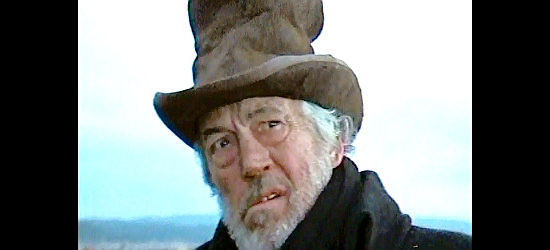
John Huston as Capt. Henry, the expedition leader haunted by thoughts of Bass in Man in the Wilderness (1971)
Released the year after Harris struck box-office gold with “A Man Called Horse,” this is another survival film.
Except this time, Harris has no one with whom to interact. So when he isn’t foraging for food or trying to survive the cold, he thinks back to a past in which he was orphaned at a young age when his mother died of sickness; then lost his wife in childbirth while he was off on one of his adventures.
He also ponders the future. Will he want a reunion with the son he refused to meet before heading off with Capt. Henry? Or will he want vengeance against the friends who left him behind?
Henry fears the latter. Having known Bass since he was a young man, he’s almost certain he survived his ordeal.
Viewers endure along with Harris — at one point watching wolves chew bits of meat of a still-living bison, until they’re interrupted by Bass, who wants a piece for himself.
For that endurance, they’re treated to a silly ending in which a still badly limping Harris staggers into the middle of an all-out Indian attack on the fur trappers, Huston and his boat.
The basis for the story was the real-life adventure of Hugh Glass, left behind with a broken leg during a fur-trapping expedition in 1823. It’s the same incident that inspired the much better 2015 film, “The Revenant.”
The screenplay for this film was written by Jack DeWitt. Interestingly, Dewitt Lee starred in a low-budget film called “Pursuit” four years later in which a cavalry scout is mauled by a bear, abandoned by the two men left behind to bury him, then forced to fend for himself.
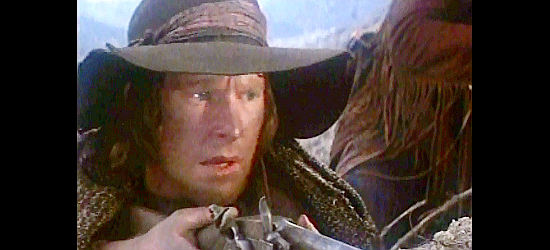
Dennis Waterman as Lowrie, left behind with Bass and watching for Indians in Man in the Wilderness (1971)
Directed by:
Richard C. Sarafin
Cast:
Richard Harris … Zachary Bass
John Huston … Capt. Henry
Henry Wilcoxon … Indian chief
Percy Herbert … Fogarty
Dennis Waterman … Lowrie
Prunella Ransome … Grace
Sheila Raynor … Grace’s mother
Norman Rossington … Ferris
James Doohan … Denoit
Bryan Marshall … Pots
Ben Carruthers … Longbow
Robert Russell … Smith
John Bindon … Coulter
Bruce M. Fischer … Wiser
Runtime: 104 min.
Memorable lines:
Fogarty, frustrated that Bass isn’t dying quickly: “Dammit, man oughta know when his time’s up.”
Fogarty, having abandoned Bass while he was still alive: “What’s the sense of getting your hide peeled to save a dying man?”
Capt. Henry: “Gentlemen, you will learn: Man is expendable. We’re exploring new frontiers and must always push on, giving our lives if need be. This is more than a trappin’ mission. We’re here to explore the new America, to dig into its pagan regions. We can’t afford to fail. Men should be prepared to sacrifice. A father should give his son’s life, gladly. Zach was like a son to me. I know he’d be proud of my decision.”
Ferris: “I knew a trapper once who ate his squaw. ‘Well, meat’s meat,’ he said.”
Lowrie, in disgust: “Ate his squaw?”
Ferris: “All but her fingernails.”
Third trapper: “Picked his teeth with those.”
Zachary Bass, returning home to find he has a baby boy, but that his wife died in childbirth: “I should have been here.”
His mother-in-law: “There was nothing you could have done. It was God’s will.”
Bass: “I never much agreed with God’s will.”
The mother-in-law, of his son: “Don’t you want to meet him, Zachary.”
Bass; “No, not now. One day, maybe, You raise him. Bring him up with the gentleness that your daughter had.”
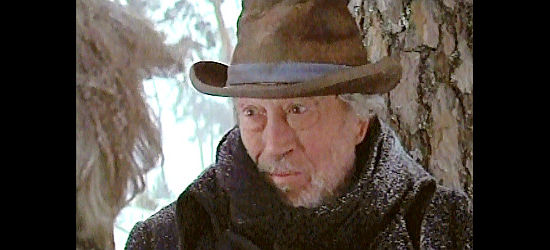
John Huston as Capt. Henry, reacting to the suggestion that his boat be left behind in Man in the Wilderness (1971)
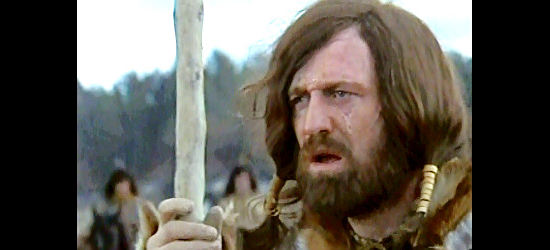
Richard Harris as Zachary Bass, his journey back from the nearby dead nearly complete in Man in the Wilderness (1971)


